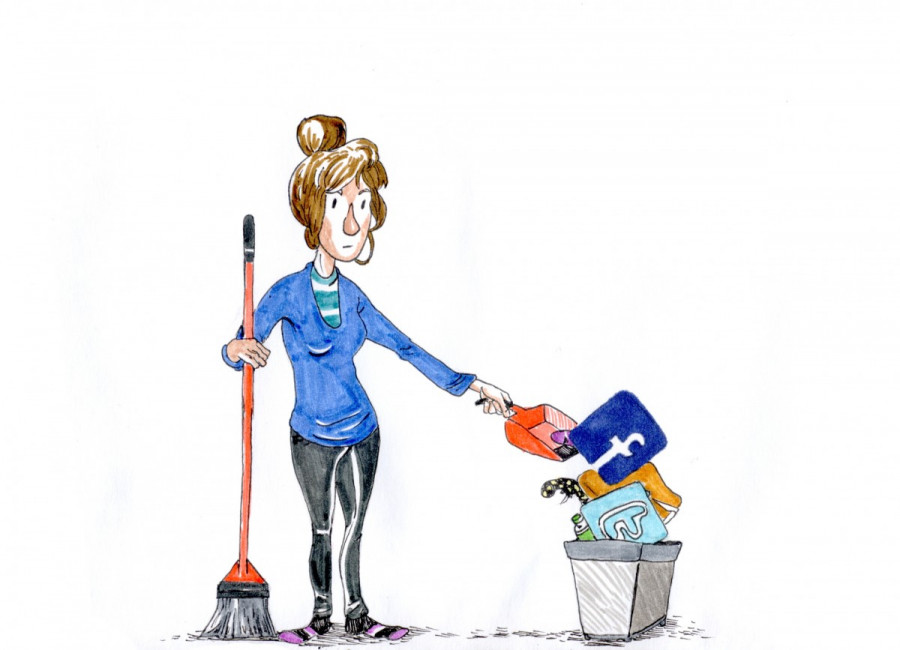A Want for Nothing
The Case for Living Minimally
When I first heard about minimalism, I imagined it to be a vacant, whitewashed apartment, whose inhabitant lived a deprived life of intentional have-nots.
But about a year ago, the glove seemed to fit a bit better. At the time, I felt disconnected, yet the days seemed to be passing faster than ever.
I was convinced I was busy all the time, but never had time to get done what I needed to, and I had little time for friends. There was an endless stream of information I had logged in to and signed up for, and an apartment full of stuff I didn’t use. I had lots of acquaintances but few I really felt a connection with, and keeping up with everything left me tired and grouchy. The juice wasn’t worth the squeeze.
I’ve come to understand minimalism as a constant exercise of consciousness. It begins again and again, as I ask myself how I want to spend my time. It’s far from being just about the “stuff” we surround ourselves with day to day; “stuff” is usually a byproduct.
Minimalism is often confused with an ascetic lifestyle, where the ascetic’s purpose is to refrain from consumerism entirely and, some would say, pleasure altogether.
I’ve become a firm believer that less is more, but nothing is not everything. Observing how much time spent behind screens of any kind, rather than interacting with people, is a great start.
I noticed how the medium I used to communicate affected my energy. I realized that spending more time making an active effort to do things with people I truly cared for was much more rewarding.
I made the decision to deactivate my Facebook account a year ago. Despite using it briefly while I was abroad, I found it wasn’t constructive anymore. I tended to rely on it as the primary means of communicating with my friends, so deactivating it meant recognizing that the “practicality” of networking had become more of an unwelcome dependence.
I realized I preferred a face-to-face network; it’s better that way. There’s something incomparable about the subtleties of body language, while “LOL” leaves most of us relatively unperturbed. The best communication is “IRL,” because it grants a reading of an honest language we all speak.
Of course, there are some instances where not social networking can be a problem. It doesn’t always cater to how we need to communicate with regards to work and school. Upon reducing my social media presence there definitely was the initial feeling of missing out on events, and the sense that I was disconnected from what everyone else was doing.
These days I tend to agree with Leo Babauta, the creator of website ZenHabits, who considers the social networking phenomenon “unnecessary noise,” noting that the disconnection can be disorienting at first. Unplugging from the social media matrix means we are forced to face ourselves in the space where our usual distractions once were.
I began to question my relationship with things I owned, and I noticed which things in my apartment were used, and which ones were collecting dust. Beginner’s guides to minimalism give ideas about how to do away with the unused, separating items into different piles: one to keep, one to throw away or donate, and one for items with undecided fates.
Allot a certain amount of time to keep the box you’re unsure about and see if you miss what’s inside after a few weeks. Chances are what’s inside will be forgotten almost entirely, so why not get rid of things that aren’t used? The ways that we distract ourselves are endless, and sentiment is prone to impair our judgment.
Many people understand that the things we own are extensions of ourselves. We all want to progress in our own way, so reconsider what you’d like to take along with you.
Another dimension of minimalism caters to a more considerate lifestyle for everyone; it’s better for everyone if each of us were to stick closer with our needs rather than submit to an endless stream of irrational wants.
It’s not news that the innumerable forms of insecurity bind us to our possessions, so what are you really shopping for? Be reminded of another familiar idea: more often than not, the experience of going somewhere or doing something will be much more valuable than the tangible, short-lived object for sale.
I’ve learned and let go of many things, and those that have remained don’t hinder my time, my experience or my peace of mind. The notion of missing out because of my inactivity online has transformed into quite the contrary. In fact, I’m busier than I’ve ever been, only this time with things that leave me satiated.
Coincidentally, there’s not a lot out there about minimalism, but if you look hard enough there are some good resources out there. I first came across Leo, and then Joshua Fields Millburn and Ryan Nicodemus at Theminimalists.com, a blog about “living a meaningful life with less stuff.” So far, I’ve found Robert Wall’s bi-monthly podcast Minimalism for the Rest of Us is most useful.
These are all means of getting some good, creative advice in pursuing a more conscious, simple lifestyle, but all it really takes is you.





webedit__600_375_90_s_c1.jpg)
_600_375_90_s_c1.jpg)
_600_375_90_s_c1.jpg)